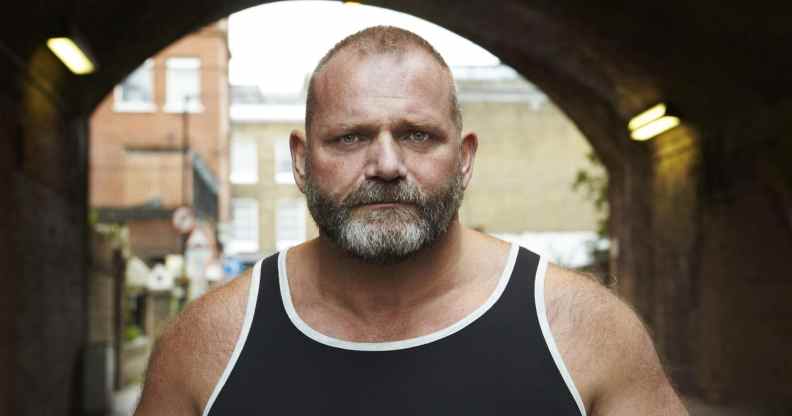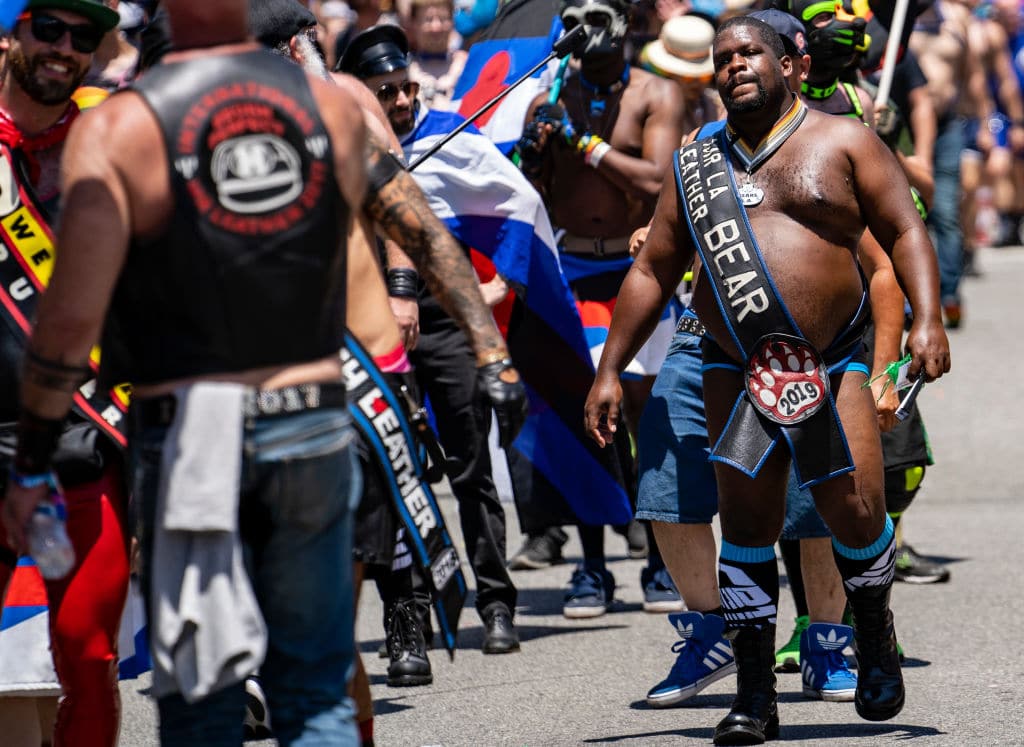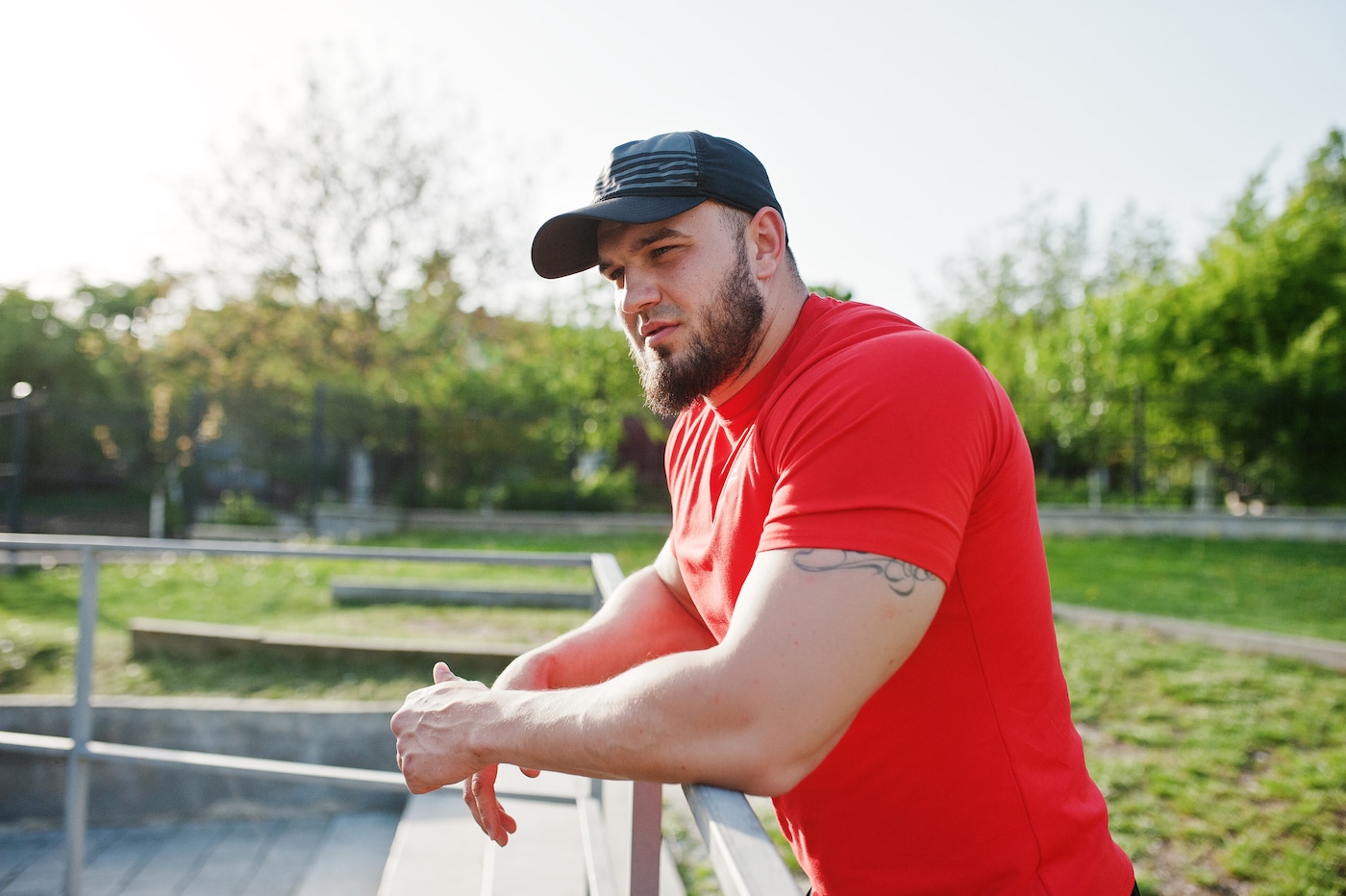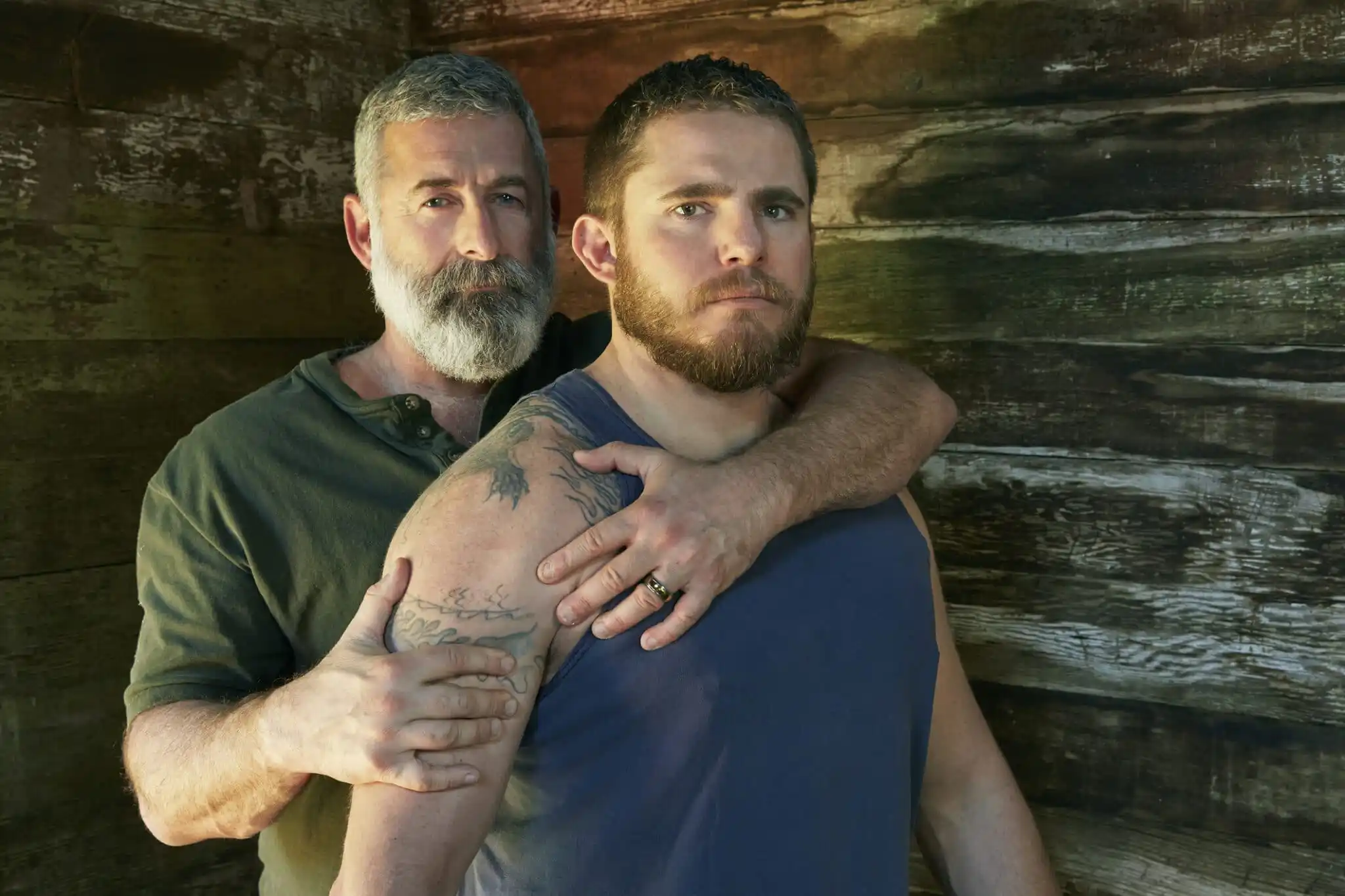Gay bears struggling with internalised fatphobia and beard envy, groundbreaking research finds

A bear standing under a bridge. (Getty)
In 2015, Nick McGlynn took his top off at a bear night for the first time – and he still remembers how amazing it felt.
“I had never done that before,” Nick, a human geographer at Brighton University, tells PinkNews. “I’d always been terrified of doing it. I took my top off in this space and it was this incredible, liberating experience, and I still remember very powerfully the positive emotions I felt through that.”
Nick, like so many other queer people, has found belonging and comfort on the bear scene. Anyone who’s ever had a Grindr profile will know that “bear” is one of the many “tribes” queer men are encouraged to slot themselves into. It’s a fluid label, one that defies definition, but it’s most often used by gay and bisexual men who are big and hairy, encompassing both fat and muscular men.
Bears have always had their own dedicated bars and club nights – being surrounded by other men who look like them is an empowering experience. In a world where fatness is so heavily stigmatised, it’s vital.
That’s why Nick was surprised, and a little disappointed, when he started looking into the academic research on bear spaces and discovered that most of it was “negative and critical”. That didn’t align with his own experiences of the bear scene.
He was inspired to conduct his own research, and the result is a fascinating, in-depth study that explores the experiences of gay, bisexual and queer men who have found a sense of community in bear spaces.
“I was reading a lot of this stuff and I thought, ‘That’s not how I feel in bear spaces when I go to them,’” Nick says. “I’ve always found them to be one of the very few places where I feel good about my body.”
Bears aren’t looking for ‘safe spaces’ – they want to feel comfortable
Through his research, Nick found that fatter queer men are, in most cases, going to bear nights not so they can feel safe, but so they can feel comfortable. In a world where anti-fat stigma is ingrained into the fabric of our society, that’s vital.
“We talk so often, rightly, about the value of LGBTQ spaces as spaces that are ‘safe’,” Nick says. “I’ve moved quite far away from safety in my research because I’m not convinced that’s what people are really looking for a lot of the time. I think people want to feel comfortable in a space and they want to feel accepted. They want to be able to let their guard down and feel at ease. I think that’s what’s important for everybody.”
Bear spaces help fatter queer men feel comfortable and desirable, but that’s not to say everything is perfect. Nick’s research also showed that issues still persist, from the glorification of muscle to the desire of some bears to not be the fattest man in the room.
“I want to be quite careful here,” Nick says. “I don’t want to say that muscle guys are the problem. That’s not the case and in fact, I have to say myself, I had that in the back of my mind going into the research, I was like, ‘I bet it’s the f**king muscle bears.’ But it’s not,” he laughs.
Instead, what Nick discovered is that fatphobia is so prevalent that just seeing a muscular man in a bear space can be an alienating experience for fatter queer men. That’s not the fault of muscle bears – it’s the fault of a society that loathes fatness.
“It’s not necessarily the case that muscle guys are doing anything wrong, but just being in the presence of muscle guys and knowing how valorised muscle is and how stigmatised fatness is, that makes people uncomfortable. That’s quite a difficult discussion to have because it’s not anybody’s fault. A muscle bear’s intention could be perfectly good, and a lot of guys in the research talk about that, but it’s just being in the presence of those bodies that makes people uncomfortable.”
Fatphobia is rampant and ingrained in the queer community
Through his research, Nick also learned that there’s an intense focus on beards on the bear scene. The archetypal image of a bear is of a man who is extremely hairy. Men with wispy, patchy beards can be made to feel undesirable.
“That was something that wasn’t on my radar when I was doing this project, but quite a few guys mentioned that it’s not enough to have a beard or a bit of facial hair, there’s the right kind of beard and that’s what makes you a bear,” Nick explains. “Quite a few guys actually pointed to me and said, ‘You’ve got the right kind of beard because it’s a full beard, it’s sculpted, it’s rounded.’ A few guys said, ‘I can only grow these wispy beards,’ or ‘My beard is at a funny angle and I can never get it cut right.’ So that idea of having a particular kind of beard I found very interesting – it can make people feel more accepted in bear spaces.”
At the core of Nick’s research is fatphobia – he’s interested in challenging deeply held, harmful ideas about fatness. Queer men will know anti-fat stigma is highly prevalent in queer spaces and communities. Through interviews with other bears, Nick learned that fatphobia is rarely overt or aggressive – it’s much more subtle than that.

A man wears a sash that says Mr. LA Leather Bear during the LA Pride Parade in West Hollywood, California. (Ronen Tivony / SOPA Images/Getty)
“It’s not about people pointing and saying ‘You’re too fat, get out of here,’ – although that did happen sometimes – but that kind of really overt fatphobia seems to be quite rare now. I think people at least have a sense that it’s not a good thing to be seen doing to other people. But a lot of guys talked about the subtlety of it. They would get little comments or they get little looks from people and that seems to be how it manifests now.”
Nick says he’s “slightly cautious” about the way people might be interpreting looks and glances in queer spaces.
“You might see yourself getting looked at and that might have nothing to do with, ‘Oh, there’s a big fat guy who’s just walked in,’ but as I talk about in my research, it’s about these atmospheres of comfort. It might ultimately be no one’s fault. It’s about these situations that we find ourselves in and how they become more or less comfortable.”
I think it suggests that fatness is still stigmatised in bear spaces.
Another one of the discoveries Nick made in his research was that fat stigma is often internalised. One of the most fascinating findings from his study is that many fatter queer men reported feeling relieved if they weren’t the fattest man at a bear night. Nick says that, for him, it’s one of the most significant findings of his research.
“I think that suggests that fat stigma is carried with all of us, even myself,” Nick says. “I think it suggests that fatness is still stigmatised in bear spaces and, in fact, maybe passing that fat stigma onto the fattest guy, that’s part of how some guys feel comfortable. That fattest man makes them feel comfortable because he’s the one that the stigma’s attached to, and it’s detaching from you because you’re not the fattest.
“That’s a very troubling finding for me and I think it’s one that certainly puts paid to any ideas that bear spaces are completely free from fat stigma, that they’re these utopian spaces for fat guys. That’s not the case at all. It definitely complicates a lot of those more positive findings that are in the report.”
Nick’s research highlights just how pervasive and troubling fatphobia really is. He would like to see queer men adopting some of the ideas put forward by feminist scholars who have worked hard to challenge fat stigma. He notes that there’s been plenty of “valuable work” done in this area, but says most of it has been created by and for women.
“That’s completely understandable because fat stigma has historically attached much more to women than it has to men, so it’s completely justified that that work is being done by and for women,” Nick says.
“But I think as fat stigma starts to attach more and more to men as well, and we know that is heightened among GBQ men, I think it’s important for us too to draw on that rich and important feminist work. We need to have these serious conversations about stigma among ourselves as well.”
You can read Nick McGlynn’s full report into bear spaces here.




